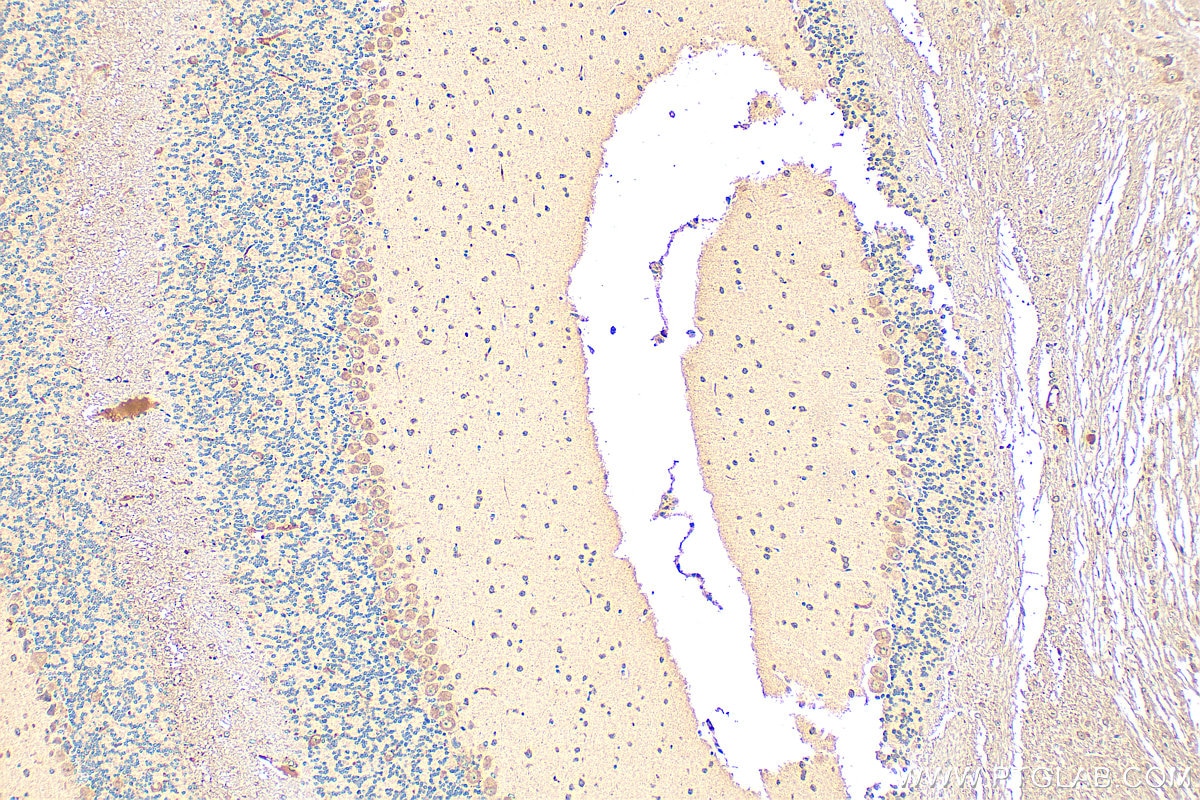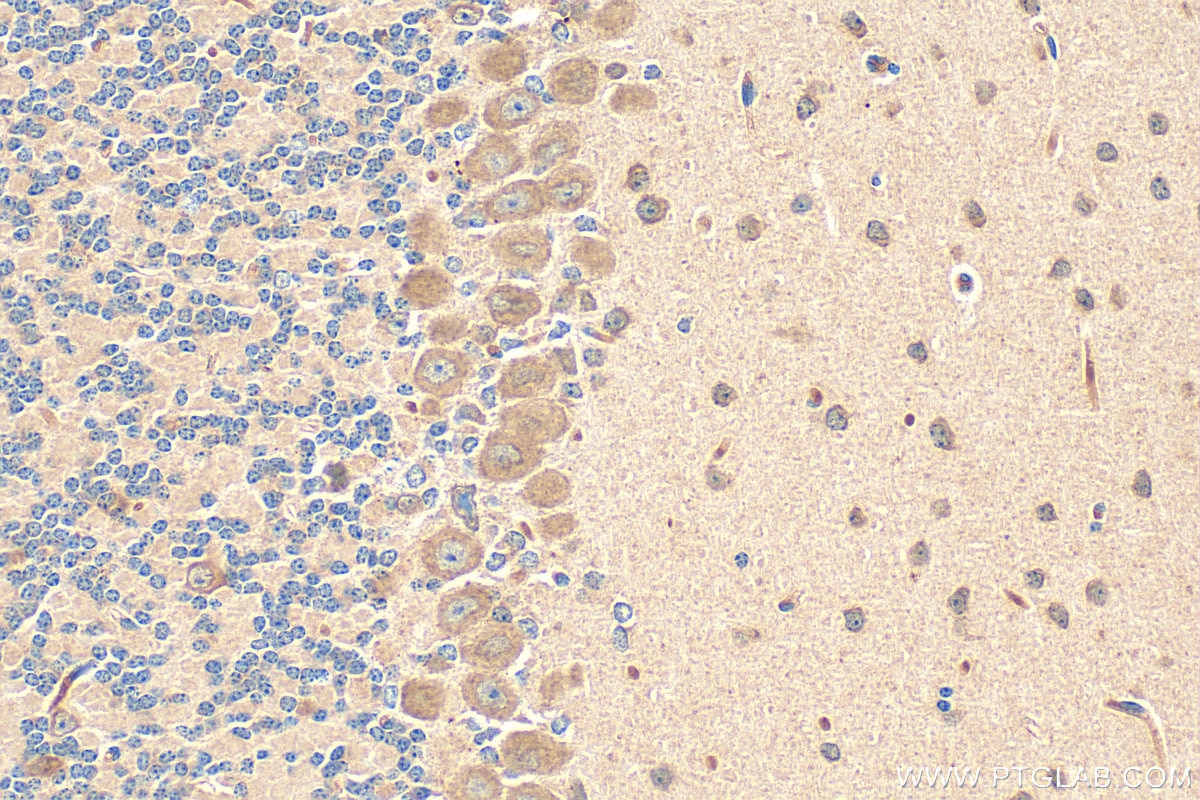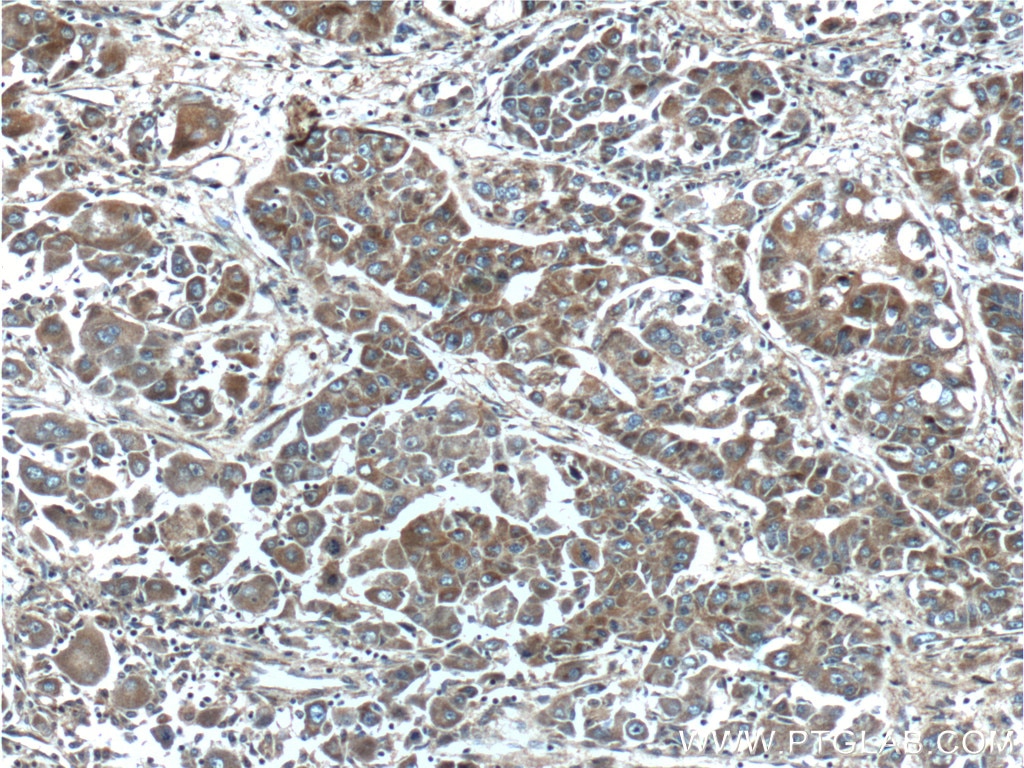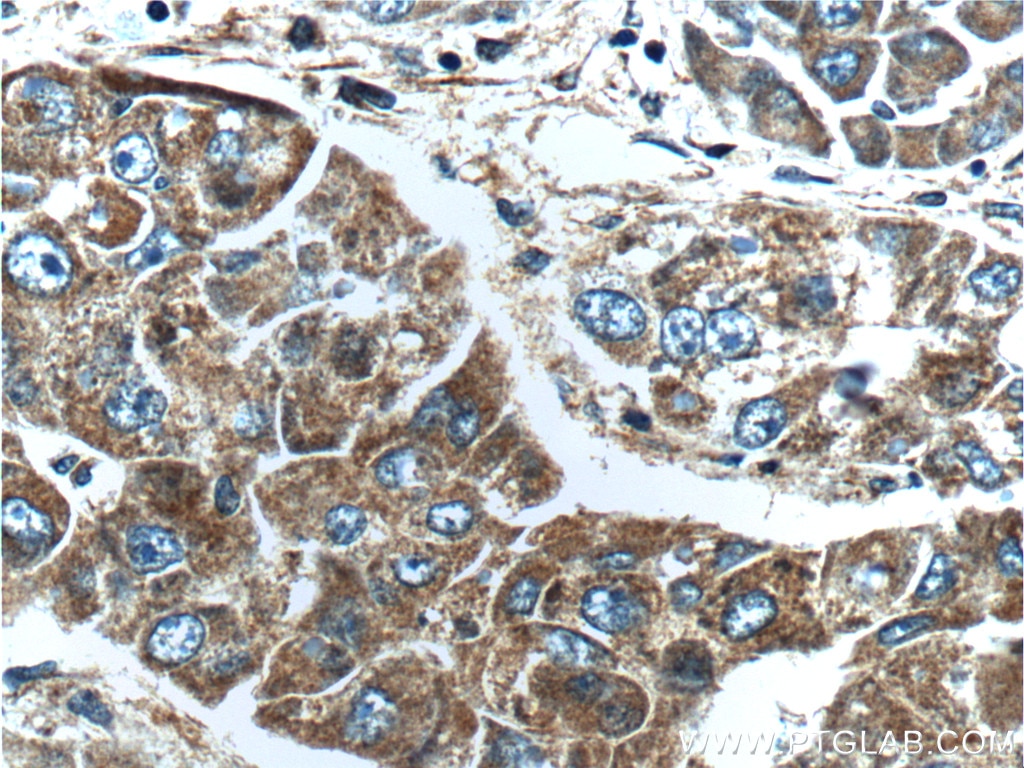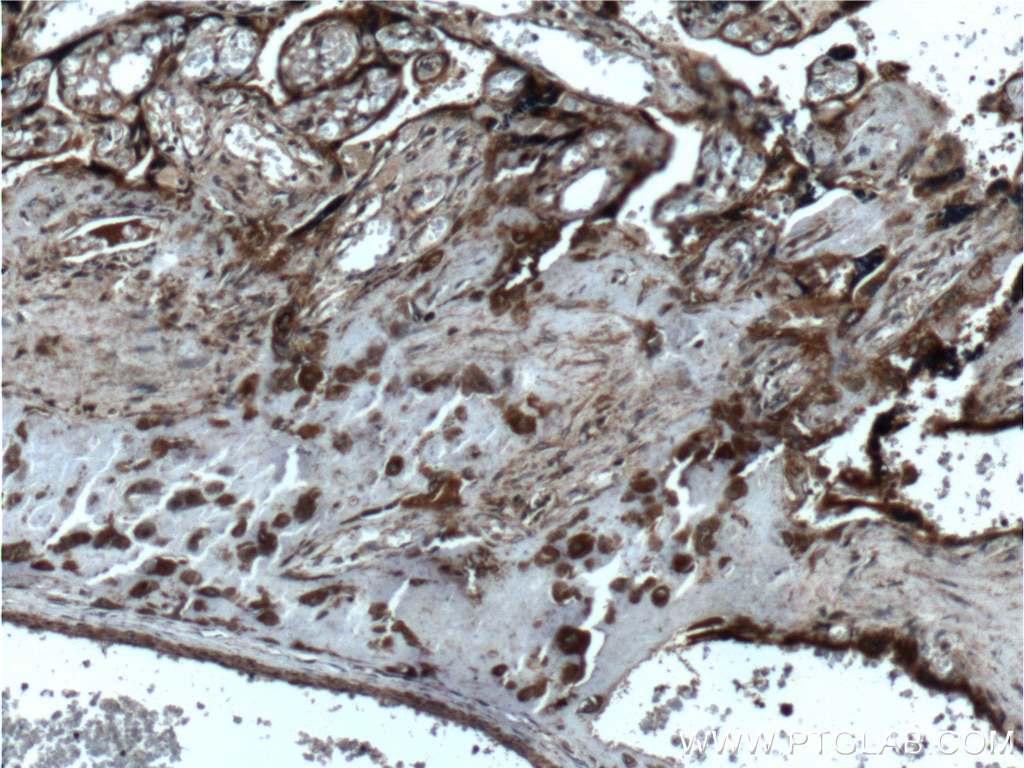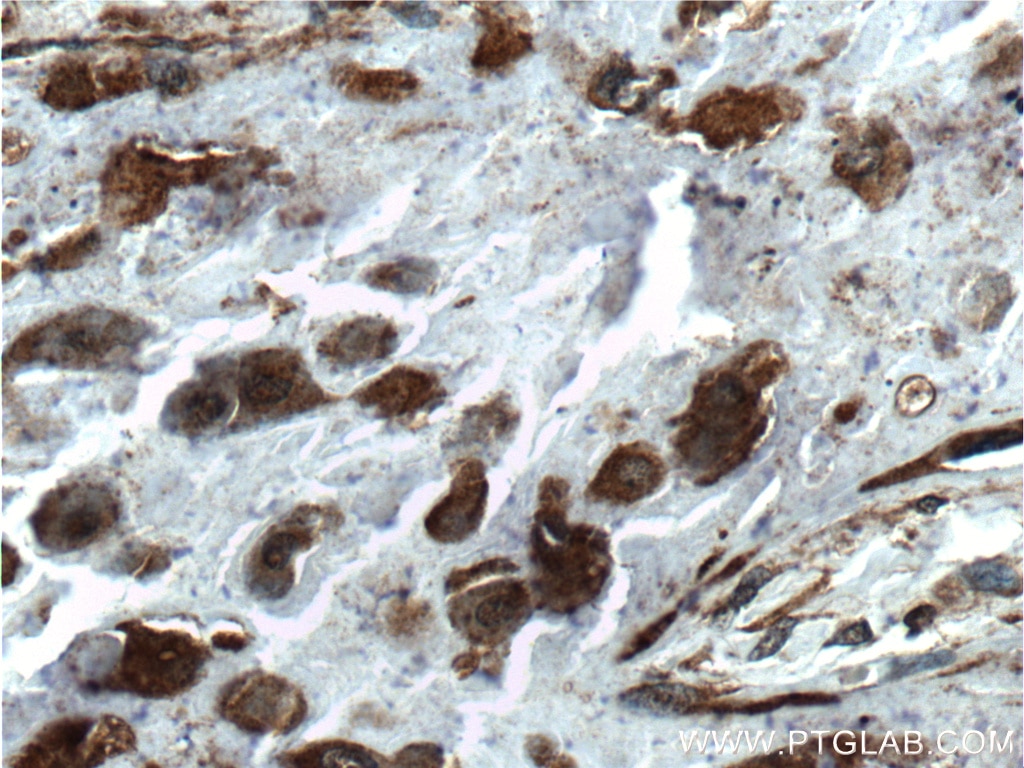Anticorps Polyclonal de lapin anti-FGF3-Specific
FGF3-Specific Polyclonal Antibody for IHC, ELISA
Hôte / Isotype
Lapin / IgG
Réactivité testée
Humain
Applications
IHC, ELISA
Conjugaison
Non conjugué
N° de cat : 16874-1-AP
Synonymes
Galerie de données de validation
Applications testées
| Résultats positifs en IHC | tissu de cervelet de souris, tissu de cancer du foie humain, tissu placentaire humain il est suggéré de démasquer l'antigène avec un tampon de TE buffer pH 9.0; (*) À défaut, 'le démasquage de l'antigène peut être 'effectué avec un tampon citrate pH 6,0. |
Dilution recommandée
| Application | Dilution |
|---|---|
| Immunohistochimie (IHC) | IHC : 1:50-1:500 |
| It is recommended that this reagent should be titrated in each testing system to obtain optimal results. | |
| Sample-dependent, check data in validation data gallery | |
Informations sur le produit
16874-1-AP cible FGF3-Specific dans les applications de IHC, ELISA et montre une réactivité avec des échantillons Humain
| Réactivité | Humain |
| Hôte / Isotype | Lapin / IgG |
| Clonalité | Polyclonal |
| Type | Anticorps |
| Immunogène | Peptide |
| Nom complet | fibroblast growth factor 3 (murine mammary tumor virus integration site (v-int-2) oncogene homolog) |
| Masse moléculaire calculée | 27 kDa |
| Numéro d’acquisition GenBank | NM_005247 |
| Symbole du gène | FGF3 |
| Identification du gène (NCBI) | 2248 |
| Conjugaison | Non conjugué |
| Forme | Liquide |
| Méthode de purification | Purification par affinité contre l'antigène |
| Tampon de stockage | PBS with 0.02% sodium azide and 50% glycerol |
| Conditions de stockage | Stocker à -20°C. Stable pendant un an après l'expédition. L'aliquotage n'est pas nécessaire pour le stockage à -20oC Les 20ul contiennent 0,1% de BSA. |
Informations générales
FGF3 is a member of the Fibroblast growth factor family, binding to Fibroblast Growth Factor Receptor 3 (FGFR3). Frequent amplification of this gene has been found in human tumors, which may be important for neoplastic transformation and tumor progression. FGF-3 was reported to be responsible for most of breast malignancies. This antibody is specific to FGF-3. It does not bind other FGFs.
Protocole
| Product Specific Protocols | |
|---|---|
| IHC protocol for FGF3-Specific antibody 16874-1-AP | Download protocol |
| Standard Protocols | |
|---|---|
| Click here to view our Standard Protocols |
